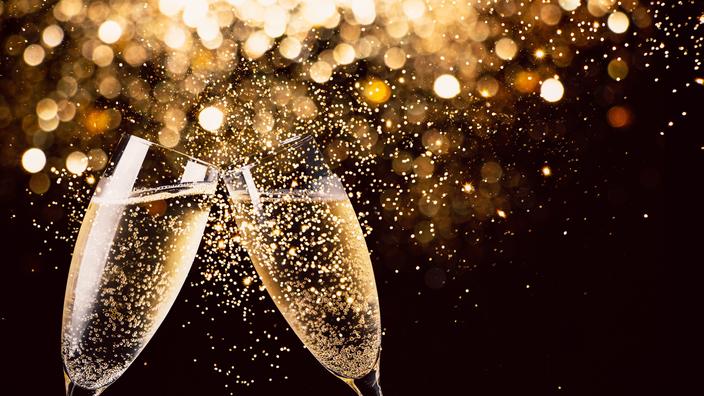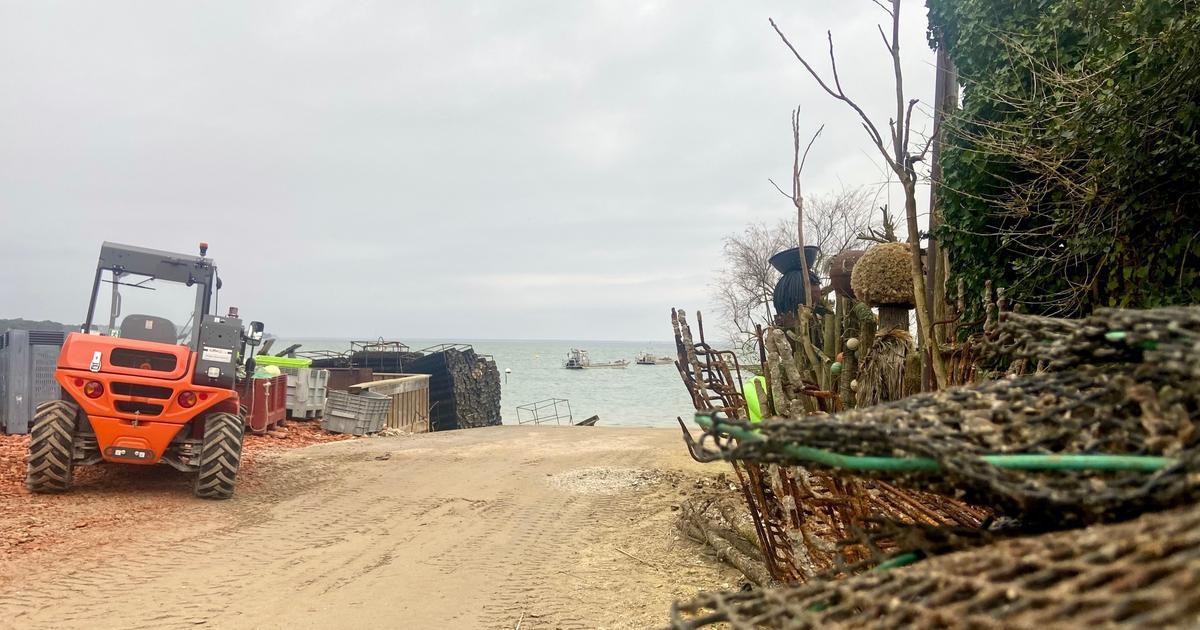As Christmas and New Years are fast approaching, where does the champagne industry find itself?
As a reminder, champagne is sold by the champagne houses but also by certain winegrowers.
Of the 18,000 winegrowers in Champagne, around 4,000 sell it: they have their own equipment or go through cooperatives.
The 14,000 others produce grapes which they sell to champagne houses.
Read also: Tips for drinking your champagne in the best conditions
A festive product par excellence, champagne inevitably suffers from the prevailing gloom and this never-ending economic and health crisis.
"The champagne industry has suffered the full force of the crisis
,
"
notes David Chatillon, general manager of the Union of champagne houses.
"
For us it's a dark year
", abounds Maxime Toubart, winemaker and president of the union of winegrowers of Champagne.
The industry has limited the damage
The first confinement was indeed a real shock for the industry.
“
During the first confinement, sales were almost at a standstill and we were really very worried,
” recalls David Chatillon.
“This year is atypical, the first confinement greatly impacted the champagne sector.
All the markets came to a halt at the same time, ”
confirms Quentin Meurisse, vice-president of marketing for Champagne at Pernod Ricard, which owns two brands of champagne: Maison Perrier-Jouët and Maison Mumm.
The industry has however "
limited the breakage
".
For the whole of 2020, David Chatillon and Maxime Toubart evoke a market down by around 20% compared to a “
normal
”
year
.
This figure is now almost a relief for the sector, which feared a decline of 50% at the height of the crisis.
This revival is explained in particular by a successful deconfinement.
“
It got off to a good start this summer in France and abroad,
” recalls David Chatillon.
"
Deconfinement has shown that people want to meet again,
" continues Maxime Toubart.
Wine merchants and direct sales held up fairly well
The situation of the players in the sector is however quite heterogeneous.
Taking into account the entire sector, the French market represents around 50% of the champagne sold.
This French market is itself subdivided into three parts: a third of sales go to wine merchants, hotels and restaurants and events, a third to direct sales and a third to mass distribution.
Champagne sold for export is split between the European market (25%) and the rest of the world (25%).
In detail, the United States, the United Kingdom and Japan are the three main export markets by value.
Wine growers and champagne houses, however, face different economic realities.
For winegrowers who sell bottles, export only represents 10% of their sales.
On the other hand, some champagne houses are very present for export.
Out of a million bottles sold each year, the Charles Heidsieck house, for example, sells 80% internationally.
Overall, the players with a strong presence in the catering industry, particularly on the French market, have been severely affected by the closure of establishments.
On the other hand, “
the wine merchants have held up well
,” explains Maxime Toubart.
Just like direct sales to individuals, essential for winegrowers.
“
Many winegrowers have done click and collect or mailing (the use of electronic mail as a means of communication, editor's note) to customers.
We also had a lot of sales in village squares.
We have limited the breakage,
”he says.
The Charles Heidsieck house, which has very selective distribution networks (in France and internationally), describes a similar phenomenon.
“
We have a clientele of gourmets.
We usually work a lot with restaurants, hotels, palaces and airlines.
We did what we could for restaurateurs, for example by selling half-bottles, but it was very complicated.
On the other hand, the wine merchants have done quite well
, ”explains Stephen Leroux, General Manager of Charles Heidsieck.
For their part, Perrier-Jouët and Mumm were able to rely on a diversified distribution network.
“
The closure of restaurants, in France and elsewhere, necessarily has an impact on gourmet champagne because it is a product that is consumed in restaurants.
But we are distributed everywhere: wine merchants, supermarkets, direct sales sites, e-commerce
”, recalls Quentin Meurisse.
According to him, between April and September, e-commerce sales (United States, China and Europe) even gained 5 years of growth.
The benefits of internationalization
For some champagne houses, international presence has been essential in these times of crisis.
Certain markets have indeed held up very well.
Others even seem to have left.
“
It's a difficult year but the group is resisting well because we have global coverage
,
”
explains Quentin Meurisse.
“
There is a good global recovery but the European markets remain at half mast,
” he continues.
“
Champagne consumption is picking up again in Asia.
In China, nightclubs and hotels are reopening, in Japan restaurants too,
”explains Quentin Meurisse.
He also cites Australia, which resisted very well during the first confinement, or the United States.
After the announcement of Joe Biden's victory, sales of champagne had also exploded in several major cities in the country, even causing stockouts.
Read also: The first Biden effect?
A rush for champagne in the United States
Stephen Leroux explains that Charles Heidsieck has sold twice as many vintage or prestige cuvées this year.
"
People said to themselves: 'we are going to consume better'
", he analyzes.
He describes unpredictable performances over the year, sometimes with surprises: big variations in the United States with a current recovery, + 40% in South Korea compared to last year or between +30 and + 40% in Italy - compared to last year -, over the period from June to September (after a 75% drop in sales over March-April).
The end of year celebrations ... while waiting for the vaccine
How do the players in the sector see these end-of-year celebrations, especially in France?
These holidays are undoubtedly a very important time.
The months of October, November and December in fact represent 40% of the volumes of champagne bottles shipped, whether to the national market or internationally.
“
Our outlook is very low compared to a typical year given government instructions, with restaurants and nightclubs closing, curfew at 8 p.m.
Christmas and New Years may be bad, but it's not going to finish us off.
We are a large group, we are going to hold out and we will take stock in January,
”explains Quentin Meurisse.
“
It is necessarily a crucial period, which plays its role, but for us it is not a question of life and death.
Most of the difficulty has already passed.
We have already suffered a lot
, ”says Stephen Leroux.
What are the prospects for the sector in 2021?
“
Our salvation will be the vaccine.
We strongly believe in the recovery.
After the crisis, people will want champagne
”, bet Maxime Toubart.
"
We want the vaccine to arrive, for events and tourism to resume,
" continues David Chatillon.
Quentin Meurisse hopes that "
it will resume in 2021, with Valentine's Day, spring, barbecues, weddings
".
However, there remains a major question: will what was purchased in 2020 be drunk during the holidays?
The industry fears a scenario similar to that of 1999. The violent storm which had crossed Europe had demoralized consumers.
Some of the champagne bought by individuals had not been consumed, which had seriously affected sales the following year.











/cloudfront-eu-central-1.images.arcpublishing.com/prisa/KMEYMJKESBAZBE4MRBAM4TGHIQ.jpg)



